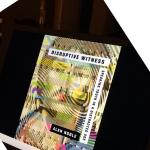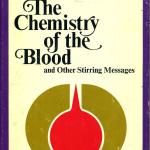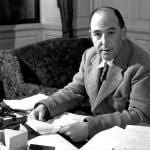Culture is harder to create than destroy, just as books are easier to review than to write.
The collection of our garbage, the flushing of our toilet, the groceries in our store are miracles with so many interlocking parts, so many engineering, pioneering geniuses that I pause over anyone suggestion that we disrupt culture. My Nana taught me to appreciate the street light: all that free energy making the dangerous darkness bright.
Yet a culture can carry on only if the weeds are culled. God let’s the bad grow up with the good, because God thinks in centuries. If our job is to live just now in the City, then we must do justice as we can since we know that we will miss so much in any case.
I have been interacting with Professor Alan Noble and his thoughtful book Disruptive Witness. His general argument, we are distracted and shallow, is sound. His prescriptions are sound, if one can quibble at times. He is, as he shares his life as a teacher, the kind of Professor you hope your kids get or that you have. He does not read books for the sake of the books, but for the sake of the reader, his students and himself.
Most of us think we are Frodo in Peter Jackson’s version of Lord of the Rings, but we are really the elf who dies at the start of the first film. We are not the center, much as we might wish, and in our hearts we know this is true. If there is no God, then our lives have meaning only so long as we can pretend we are writing a script as the director of our destiny.
We can do this, but it is unsatisfying. We want more. Anything that can be sold is false, just as mentoring without meeting, education purely online, is a fraud. We are incarnate and need more than the mental. We have to be there.
That would be fine, but even this is not enough. We are not a product, but a person and a person with eternity in our hearts. As a result, we need to be there (in the flesh), but face a Mystery that is bigger than anything that can be marketed, controlled, or generated out of our own passion.
If you can manipulate it, then it is not enough. Anybody who misses this thinks that love can be purchased. Noble has the balance: we feel with our bodies, are passionate in our hearts, and think with our minds. Literature can do all these things for us simultaneously. Plato said it best the story can save us if we will only believe it (Republic X) and if we have picked the right story: true historically and mythically.
Noble, like Plato, sees beauty, goodness, and truth as so real that we cannot ignore them. We may pretend that beauty is in the eye of the beholder, goodness is what the majority says it is, and truth is found by polling, but beauty, goodness, and truth are real. This concrete reality keeps breaking through the distractions.
Noble reads tragedy and so is ready for the reality we cannot escape: death. He is looking for stories that prepare us, help us experience before the final test, what is coming. We can live many different lives, but death is in common. Education is, as a result, at least in part a preparation for how to die well.
We know we will need to do this, but a consumer driven culture tries to hide this from us. Death, however, cannot be cheated. He comes. The right story can prepare us, the greatest story ever told can save us.
Maybe.
If not, then nothing less whole than a story can do so, because we are bodies, minds, and passions. Save all or none, because no man can live eternally without a body, a mind, or passion. When Noble calls for dialog about stories, he stands in the great tradition of Socrates, Jesus, and all the great educators that have ever lived. This is just what we need and Noble knows that this is not a hunt for “Christian” ideas or images.
We read to understand, not to justify our understanding. We must talk: open endedly talk. This dialectic is to the Fundamentalist a stumbling block and to the Modernist folly. Both wish to cut to the answer vouchsafed to them alone.
God save us from both.
Professor Noble chooses The Great Gatsby as a story that can inform us and I am reminded of the pleasure of a great teacher teaching on his story. Gatsby makes the human divine and so misses both. He turns the sign into the destination and is thus utterly lost. God help us all.
Why?
Noble is wise enough to know that we are sick enough to turn the disease into our fetish. We must die, so we court death. We experience pain as volume up button to help us hear, but then worship the volume up button.
Professor Noble says: “No.”
Noble concludes beautifully:
The world reveals the Creator’s majesty, the beauty of his goodness, and the goodness of being, and it calls us toward gratitude to him. Even in our distracted, secular age, these manifestations of God’s goodness cannot be extinguished. But they can be rerouted, reframed, or retold as something glorious but mundane, having the appearance of transcendence but without its presence. A disruptive witness treats these manifestations of transcendence as manifestations of transcendence in the stories we tell and in the way we experience tragedy. Our calling is not to invent allusions to God in our lives but to reveal and affirm the ones that are already, necessarily there.
Buy the book.
_______________________
Alan Noble is the “co-founder and editor in chief of Christ and Pop Culture.” If you are not reading Christ and Pop Culture and you are interested in Christ and/or Pop Culture,d then bad. Go and subscribe.
I am slow-reading his new book. Part 1, Part 2, Part 3, Part 4, Part 5, Part 6, Part 7,
D















